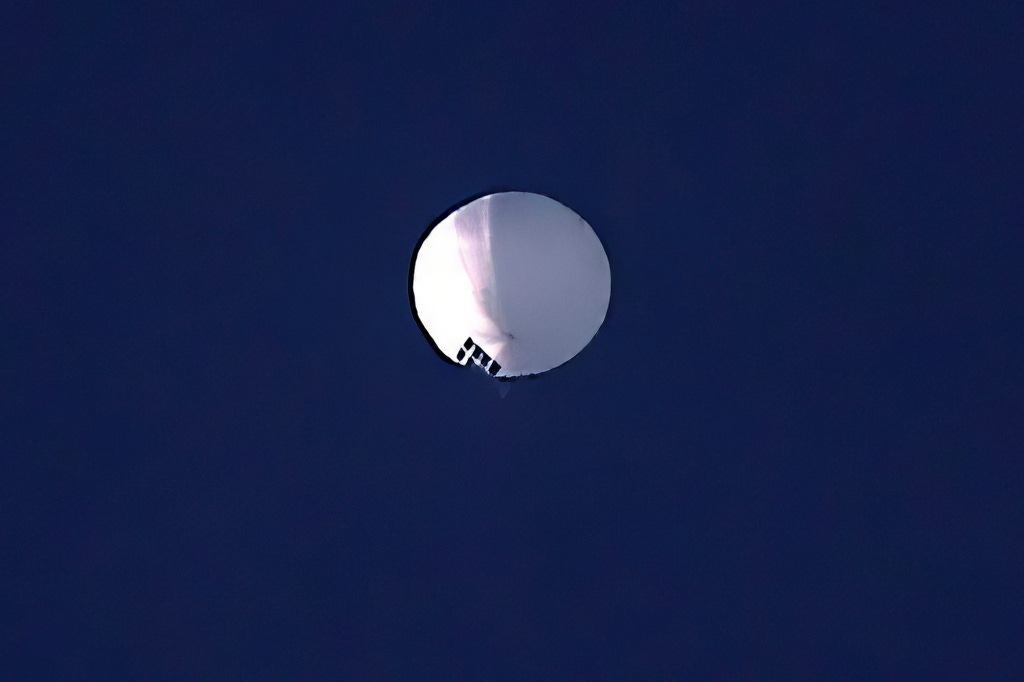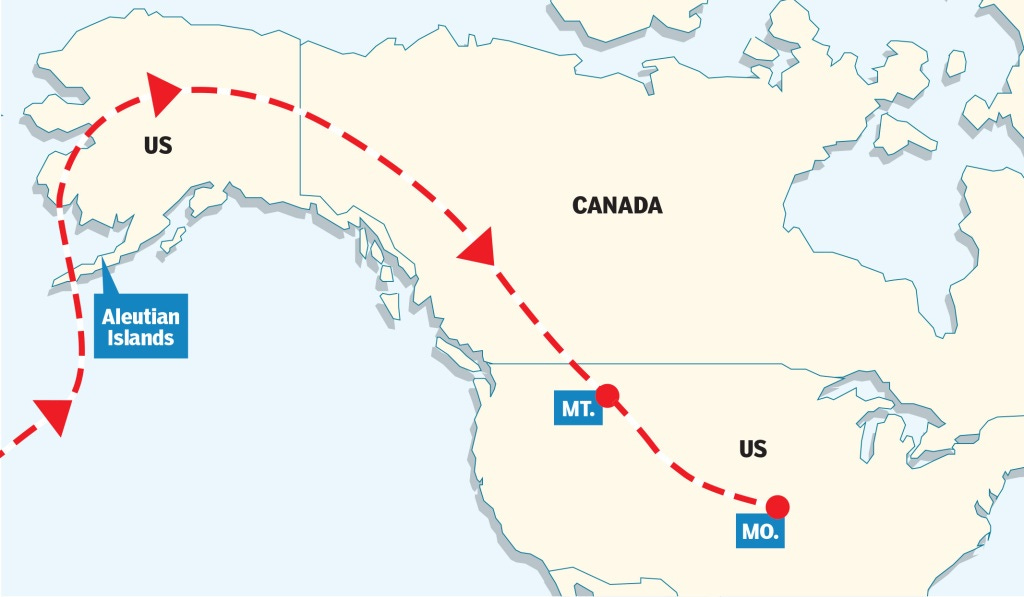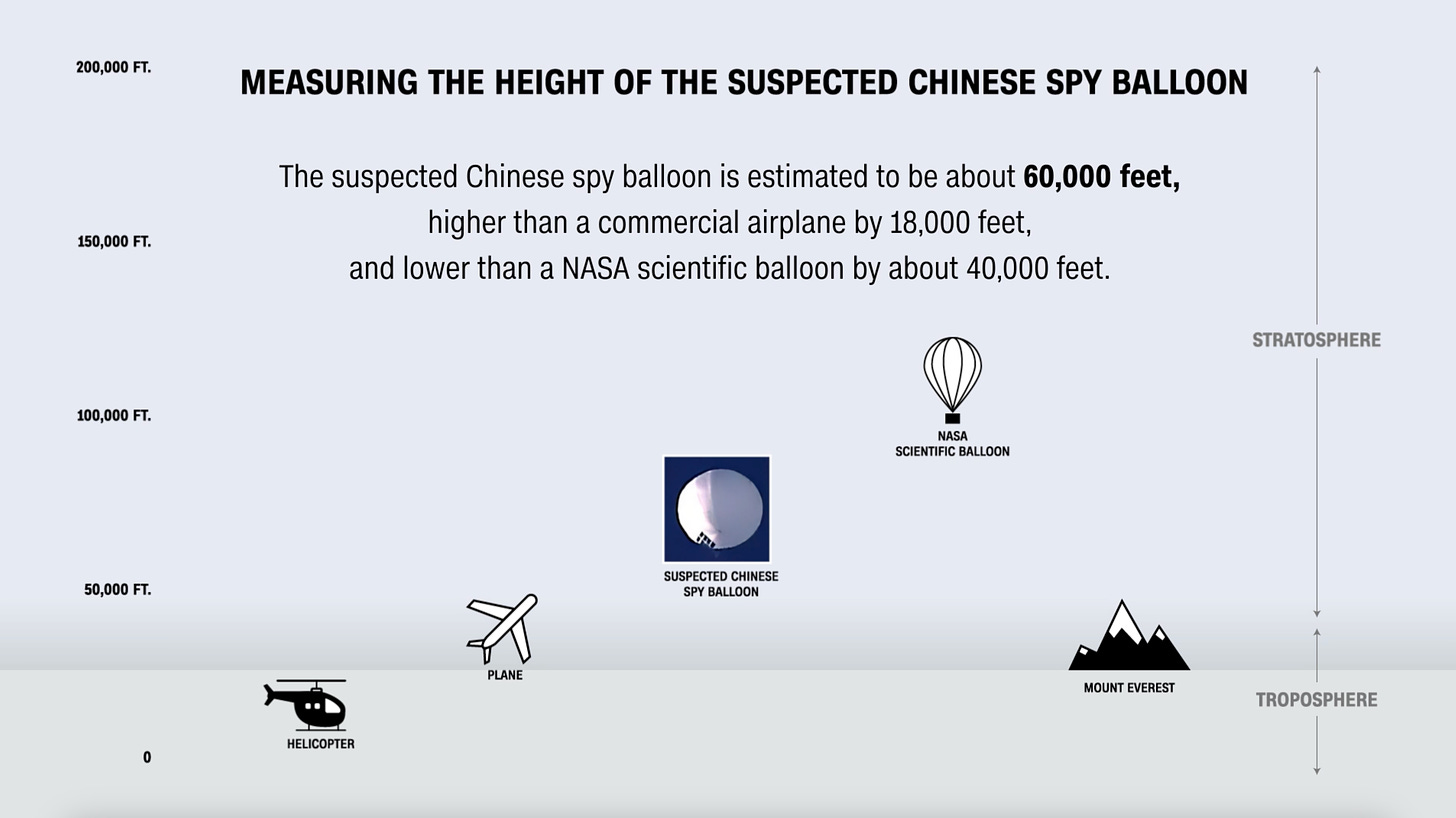I wasn’t going to do it, I swear.
I wasn’t going to write about balloons but, once I started reading all the hot air on the subject, I just couldn’t resist. We will never look at balloons the same again. We will never look at a lot of things the same again.
I don’t know which is scarier (in an absurd sort of way), balloons or fungi. Balloons portend a war with China. On the other hand, more people die from fungal infections than from malaria, killing around 1.5 million people every year. I never knew that until I started watching HBO’s The Last of Us.
We all know a poisonous mushroom can kill us. But since when were we ever told we needed to be afraid of balloons?
Back when balloons were fun:

Balloons are now sinister:

This has got to be one of the funniest stories to come out of Washington DC so far. I picture a team of Hollywood writers, sequestered somewhere in an underground bunker, charged with creating and maintaining this “TV series” that started with Covid and has now invaded every aspect of our lives. Just like any drug, as the masses’ addiction grows, each episode must hit us harder and with more intensity than the last.
A little googling uncovers that the Chinese are partial to hot air intrigue.

The earliest military application of a balloon is often credited to Zhuge Liang, a well-known war strategist in dynastic China. That was in the 3rd century, when he used kerosene-doused cloth to propel a sky lantern that alerted allies in neighboring cities of a looming attack.
In the almost two thousand years since, balloon technology advanced and was used increasingly for reconnaissance missions during wars in the 19th and early 20th centuries, particularly during the Cold War. But the advent of satellites and drones rendered spy balloons mostly obsolete.
Mostly obsolete, you say. Then why did the New York Post tell us that in its “January report on Unidentified Aerial Phenomena — Pentagon jargon for UFOs — the Defense Department noted 163 of 366 reports (or 44%) could be “characterized as balloon or balloon-like entities.”
Approximately 163 balloons are reported floating around every month.
That’s kind of a lot, isn’t it? The news never picked up on this boring reality until a few days ago. Apparently, three Chinese spy balloons flew over the US during the Trump administration. Yet Mark Esper, the former Secretary of Defense under President Donald Trump, told ‘CNN This Morning’ that he was “surprised” by the information.
“I don’t ever recall somebody coming into my office or reading anything that the Chinese had a surveillance balloon above the United States,” Esper said, adding that “I would remember that for sure.”
Maybe the Hollywood writers weren’t so creative back in those days. Or maybe they weren’t so hard pressed to come up with ever more outrageous stories. I mean, how do you follow-up a box-office hit like Covid? You have to keep the tension high with stories like Monkeypox, the Ukraine war, cyber-attacks, new viruses, while we wait for the next “big one.”
Imagine the government’s propaganda producer berating the writers in the bunker. “You’re never gonna get outta here alive if you don’t come up with something to convince the masses that we’re on the brink of war with China—or at least get Blinken an excuse to cancel his trip to China.”
You have to hand it to those Hollywood whores; they outdid themselves this time. Who would have thought a story like this could “fly”?
We are now being told China has been developing new balloon surveillance technology for years. Not to be outdone, so is the United States.
Well, that’s not much, considering U.S. military spending, traditionally defined, was $730 billion in 2019. Estimates can easily have that number exceeding $1 trillion per year.
Check out how that compares with the rest of the world.

Surely this means that the United Sates has its fair share of surveillance balloons drifting around the world, too. How often do they just happen to lazily drift off course and into countries with strained relationships, such as China? Would China’s military sit back and watch a US balloon float across the country? Somehow, I doubt it.
C News reports that:
China once forced down an American spy plane and held its crew captive on Hainan Island.
Below is the course the Chinese balloon took across Canada and the United States.

We can see where the balloon enters US airspace and how it travels all the way across a large portion Canada and then the United States. What we don’t see is where the balloon originated. Did it float all the way from China? Why didn’t anyone notice it before it entered United States territory?
Let’s look at the timeline.
Saturday January 28th:
The balloon is first detected over U.S. airspace high over Alaska, north of the Aleutian Islands. (How did it get there undetected?)
Monday Jan 30th:
Over the next two days, the military’s North American Aerospace Defense Command closely tracks the balloon, assessing it poses no threat or intelligence risk. (Great! Welcome to America. Go wherever you please!)
BUT WAIT, this also happened on Monday:
Officials determine it is used for spying, as it carries surveillance equipment suspended below the balloon.
Oh, and another Chinese spy balloon is currently making its way over Latin America. Balloons, balloons, everywhere!
So, which is it? Does this balloon pose a threat, or not. Why can’t we get a straight answer on anything?
Tuesday, Jan. 31:
Welcome to the United States! The balloon re-enters U.S. airspace over northern Idaho. The Defense Department alerts President Joe Biden, who asks for military options to shoot it down.
The Pentagon says, no worries! “We can track the exact path of the balloon and ensure no activities or sensitive unencrypted comms will be conducted in its vicinity.”
Wednesday, Feb. 1:
Except that now, Pentagon officials are “alarmed as the balloon makes its way over Montana, which is home to Malmstrom Air Force Base, one of three sites that operate and maintain the nation’s silo-based intercontinental ballistic missiles.”

February 3, 2023: US Secretary of State Antony Blinken postpones his trip to China.
“We’re confident this is a Chinese surveillance balloon,” he said.
The president continued to receive regular briefings and updates from the National Security Team.
Jean-Pierre described how the decision-making process worked, saying that after being briefed, Biden asked “the military to present options—it was the strong recommendation by Secretary Austin, Chairman Milley, the commander of Northern Command not to take kinetic action because of the risk to safety and security of the people on the ground.”
Oh hey, isn’t Milley the guy who contacted his Chinese counterpart at the end of the Trump administration to reassure him that Beijing would not be attacked by the lame-duck president?
On January 8, 2021, Milley assured Pelosi that “the nuclear triggers are secure and we’re not going to do — we’re not going to allow anything crazy, illegal, immoral, or unethical to happen.”
Talking about crazy lame ducks, aren’t you glad this guy has his finger on the button now?

Tom Karako, director of the Missile Defense Project at the Center for Strategic and International Studies, told National Public Radio. “We shouldn’t let this thing be floating above our ICBM fields, or really over the U.S. in general.”
Stop being so fussy! Once it had accomplished all it set out to do in the most leisurely fashion, the US military shot it down.
Phew! That went well. People are still talking about it. Shoot, I’m talking about it.
In my essay, Cognitive Warfare & the Rise of Neo-Nazism, I quote Joost Meerloo:
“Hitler’s psychological artillery was composed primarily of the weapon of fear. He had, for example, a network of fifth columnists whose main job was to sow rumors and suspicions among the citizens of the countries against which he eventually planned to fight…Fear began to direct people’s actions. Instead of facing the real threat of German invasion, instead of preparing for it, all of Europe shuddered at spy stories, discussed irrelevant problems, argued endlessly about scapegoats and minorities.”
He could have been talking about today. Yes, the Chinese spy balloon is funny and entertaining. But underneath the laughter an uneasiness is growing. What if it’s all true? What if Covid really was made in a lab and unleashed on the world. What if aliens are closer than you think, maybe even living amongst us. What if fungi are mutating and about to attack us. What if we can expect World War III in 2023. What if we can expect an even worse pandemic by 2025.
And the most terrifying of all: What if a major cyber-attack causes significant loss of life and money in 2025, sending us all back into the Dark Ages. Gartner predicts that by 2025 Cyber Attackers will have Weaponized Operational Technology Environments to Successfully Harm or Kill Humans.
The balloon story will die down. Other outrageous stories are sure to keep on coming.















1 comment
How many millions of dollars did it cost the US to ‘shoot’the phantom balloon down? Well, I’m sure it must have made economic sense to somebody … because it makes NO sense to me.
Whoever manufacture the planes and missiles would be laughing into their cognacs.